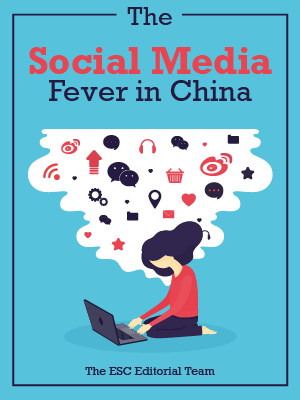Ecommercestrategychina.com uses cookies and other technologies to provide you a better browsing experience. You can get more information regarding the use of cookies, or decline it whenever by clicking Privacy Policy. By using this site or clicking “Okay”, you give us the consent to the use of cookies.
OKAY
After the sharing economy, e-commerce businesses are seeking for growth opportunities in the sizzling used-goods market.
In countries with a booming consumption, the circular economy is being developed. This is partly due to the fact that people in industrialised countries are rich in material goods and that many of these goods are not needed. On the other hand, consumers care about the economy and environmental protection.
China's second-hand economy is also booming. Data of 2017 shows that the annual volume of second-hand goods transaction in China has exceeded CNY¥70 million. The increase in consumption in China has resulted in the emergence of many used goods, while the westernisation of consumption among Chinese consumers has also led to an increase in the circular economy. In addition, using platforms such as travel-sharing, has changed the Chinese people's idea of using second-hand products. In the past, people would be ashamed to use other people's used products, but now they think it is a kind of conservation and environmental protection. Young people are the most receptive - among Xianyu's 200 million users, more than 54 percent of them were born in the 1990s.
More importantly, the infrastructure of the circular economy is improved through the internet. Recycling platforms, second-hand platforms and rental platforms have emerged. Xianyu and Zhuanzhuan are the most notable among those. Xianyu is a digital flea market launched by Alibaba, which allows users to communicate and trade directly and hosts different communities based on circles and interests of users. Zhuanzhuan, a trading platform for second-hand goods, is backed by the other China tech giant, Tencent.
Credit investigation systems such as the Zhima Credit score have also been gradually improved with rich financial systems such as WeChat payment and Alipay. The Internet is becoming a factor in strengthening the circular economy in China.
Some users are wondering if the emergence of circular economy could hinder the development of the sharing economy. In fact, there is nothing to worry about because the circular economy is another form of sharing economy.
A circular economy extends the lifecycle of a product so it can be re-used by another user in various forms. For example, Huishoubao.com classifies recovered mobile phones into three grades: excellent, good and faulty. Excellent products are used for secondary sales. Good products are disassembled and re-circulated in the maintenance market. And faulty products are recycled directly and the precious metals are recovered by the environmental protection agency. It respectively represents the three main ways of recycling a product: second-hand sales/refurbished sales/recycling of components. No matter what type of recycling is used, they all embody the nature of the sharing economy. Like the sharing economy, the recycling economy emphasises the use of a product and does not (permanently) occupy a product.
Alibaba and Tencent have already rushed into the circular economy and second-hand cycling economy with massive investment, which will undoubtedly make them penetrate deeper into the lives of Chinese people in the future.
Please Login to add comments.

$9.99 $19.98

$9.99 $19.98